Amplifying Audiology Awareness: Celebrating Audiology Awareness Month
October is Audiology Awareness Month, a month dedicated to sharing information about conditions that affect your ability to hear and the experts who work on treating those conditions. The American Academy of Audiology established Audiology Awareness Month in 2008.
The purpose of this month of recognition is to educate the public about hearing-related disorders and how they impact those diagnosed with them.
Audiology Awareness Month focuses primarily on hearing loss and impairment. During October, audiologists share symptoms you should look out for, causes and risk factors, and management tips. The goal is to recognize the individuals affected by hearing loss and create a better understanding of what life is like when you cannot hear fully.
This month is vital for hearing care and creating an accepting world for those with hearing impairment. It also brings attention to the audiology profession, which makes a world of difference for patients with hearing loss.
An audiologist can determine the cause of your impairment and provide the treatment you need to navigate your condition. Find out about Audiology Awareness Month and maintaining your hearing health in this comprehensive blog.
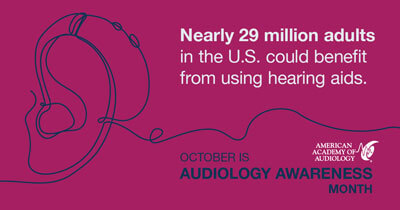
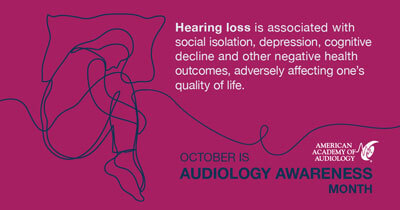
The Importance of Hearing Health
According to the National Institute on Deafness and Other Communication Disorders, around 15% of adults in America struggle with some level of auditory difficulty. When you have trouble hearing, it can impact nearly every aspect of your daily life. Those with hearing impairment face troubles with work, personal relationships, and even their favorite pastimes.
Holding a job can be particularly difficult for people with hearing loss. Communicating verbally with customers and listening to their responses is central to customer service, food service, and retail positions. Few job opportunities or career paths are easy for those who cannot hear well.
Hearing loss also presents hardships for personal relationships with friends, family, or partners. When you cannot hear as well, you may find yourself refraining from conversation or openly communicating. Unfortunately, withdrawing from social settings may harm your relationships in the long run.
Experiencing hearing loss can be hard for older individuals who enjoy speaking to family over the phone, hearing their grandchildren laugh, or catching up with old friends over lunch.
One of the best ways to avoid hearing loss or impairment is by maintaining good hearing health throughout your life. Regular hearing tests from a top-quality audiologist are the most efficient way to catch these concerns before they become severe. Early diagnosis leads to early intervention, meaning you get the treatment you need to retain your hearing.
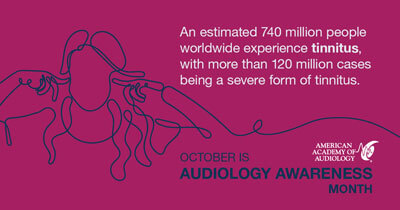
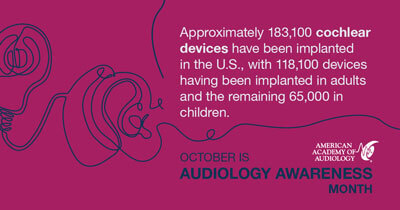
Tips for Preventing Harmful Noise Exposure
One of the most significant contributors to hearing loss is excessive noise exposure. Prolonged or repeated exposure to loud sounds, whether from occupational environments, concerts, or personal listening devices, can damage the delicate structures of the inner ear and lead to permanent hearing loss. Preventing noise-induced hearing loss is crucial, and there are several practical steps to protect your hearing. Wearing ear protection, such as earplugs or earmuffs, in noisy environments can significantly reduce the impact of harmful sounds. Additionally, lowering the volume on personal devices and taking breaks from exposure to loud noises can help preserve your hearing. Regular hearing checks with an audiologist will allow for early detection and intervention, helping you maintain optimal hearing health.
Learn more about Noise-Induced Hearing Loss (NIHL) here.
Audiology Awareness Month: A Month of Education and Advocacy
The American Academy of Audiology established Audiology Awareness Month as a way to teach people about hearing loss, those affected by it, and those who treat it.
Throughout October, there are global efforts that bring more attention to hearing health. This includes events held by local audiology centers like Happy Ears Hearing Center. Events can include everything from community walks, fundraisers for charity, and educational presentations.
One national effort is the Ask Me About Audiology campaign held by the Student Academy of Audiology. This campaign encourages the public to show interest in hearing loss and gives people the opportunity to ask questions or voice concerns about auditory impairment.
To open a dialogue about hearing loss among friends and family, you can take your efforts to social media. During Audiology Awareness Month, online campaigns are used to educate the public on the symptoms of hearing loss. These campaigns also provide insight into causes, risk factors, treatment, and prevention.
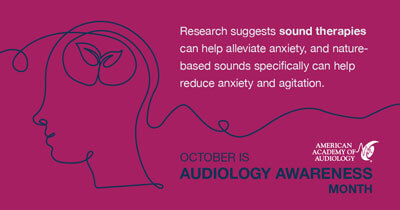
Spreading Hearing Loss Awareness
Audiology Awareness Month is a great time to spread information about hearing loss and how it affects those who have it. This month is also the best time to educate people on the importance of audiologists and how they can diagnose auditory impairment early on, getting patients the treatment they need to improve their quality of life. Audiology professionals are instrumental in preserving hearing in patients of all ages.
If you are concerned about your hearing health, it is essential that you be proactive and advocate for yourself. When you notice changes in the way that you hear, or if you are experiencing new difficulties hearing, seek an evaluation right away to determine the cause. This is the most effective way to keep your hearing as strong as possible.
To spread hearing loss awareness, you can go on your social media and share related links, sites, and scholarly journals. You can also learn more by contacting the American Academy of Audiology or scheduling a consultation at Happy Ears Hearing Center.
Our doctors provide comprehensive hearing exams, vestibular assessments, and devices like hearing aids and cochlear implants. Contact us today to schedule your first appointment.
FAQ: Audiology Awareness Month
1. What is Audiology Awareness Month?
Audiology Awareness Month takes place every October to educate the public about hearing health, hearing loss, and the vital work of audiologists. Established by the American Academy of Audiology in 2008, it aims to raise awareness of hearing-related disorders and encourage early diagnosis and treatment.
2. Why is Audiology Awareness Month important?
This month highlights the impact of hearing loss on everyday life and emphasizes the importance of regular hearing checkups. It also celebrates audiologists—the professionals who help diagnose, manage, and treat hearing and balance disorders—to improve patients’ quality of life.
3. How common is hearing loss in the United States?
According to the National Institute on Deafness and Other Communication Disorders (NIDCD), approximately 15% of American adults experience some form of hearing difficulty. Hearing loss can affect communication, relationships, and mental health, making awareness and early care essential.
4. What are common causes of hearing loss?
Hearing loss can result from aging, genetics, illness, medications, or exposure to loud noise. Prolonged or repeated exposure to harmful noise levels—such as at concerts, in workplaces, or from personal listening devices—is one of the leading preventable causes.
5. How can I protect my hearing?
You can protect your hearing by lowering the volume on personal devices, wearing earplugs or earmuffs in loud environments, and taking breaks from noisy activities. Regular hearing screenings with an audiologist can help detect early signs of damage before they worsen.
6. What is Noise-Induced Hearing Loss (NIHL)?
NIHL occurs when the sensitive hair cells in the inner ear are damaged by excessive noise exposure. This type of hearing loss is often permanent but preventable through the use of proper ear protection and safe listening habits.
7. How does hearing loss affect mental health?
Studies have shown that untreated hearing loss is linked to higher rates of depression, anxiety, and social withdrawal. Early intervention with hearing aids or other treatments can significantly improve communication, confidence, and emotional well-being.
8. What are some ways to get involved in Audiology Awareness Month?
You can participate by sharing educational resources on social media, attending local hearing health events, or supporting awareness campaigns like “Ask Me About Audiology.” You can also schedule a hearing evaluation for yourself or a loved one to promote proactive hearing health.
9. When should I see an audiologist?
If you notice symptoms like muffled sounds, frequently asking people to repeat themselves, ringing in your ears (tinnitus), or difficulty following conversations, it’s time to see an audiologist. Early testing and treatment can prevent further deterioration and improve your hearing experience.
10. Where can I get professional hearing care?
You can schedule an appointment with Happy Ears Hearing Center to receive a comprehensive hearing evaluation, vestibular assessment, or hearing device consultation. Our audiologists are committed to helping you preserve your hearing health and maintain a better quality of life.
 Donate by November 25, 2024
Donate by November 25, 2024 
